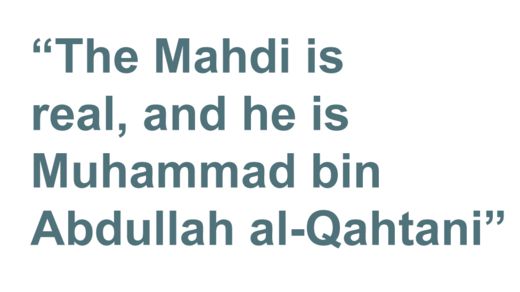Guest Post: Recommended readings, real and imagined for Military Leaders—Part I. Timothy R. Furnish, PhD
Sunday, May 30th, 2021Zen here – today we start a series by Dr. Timothy R. Furnish, a longtime friend of ZP blog. Timothy Furnish is an Army vet and former civilian consultant to Special Operations Command with a PhD is in Islamic history. He’s written five books and runs the website Occidental Jihadist.
Fictional novels about war have been around for quite some time. Millennia, in fact, if we include The Iliad in the category (although Homer likely thought he was recounting actual history). The genre, more realistically, began with La Chartreuse de Parme by “Stendhal” in 1839, who wrote about the Napoleonic Wars in Italy. Such proliferated in 19th, then 20th century, with realistic novels such as All Quiet on the Western Front, about WWI, or The Thin Red Line, set in WWII’s Pacific theater. Military science fiction kicked in the genre’s door in 1959, with Robert Heinlein’s (in)famous Starship Troopers. The following decade alternate military histories began to proliferate, thanks in large part to Philip K. Dick’s famous The Man in the High Castle (which was made into an arresting Amazon Prime TV show, 2015-2019). Perhaps the most famous, and influential, military fiction books of recent years have been Stephen Pressfield’s Gates of Fire, about the Spartans at the battle of Thermopylae; and Orson Scott Card’s Ender’s Game, set several centuries in the future, during an interstellar war humanity is waging to survive.
I am a big fan of historical fiction in my world history courses, and always assign a relevant novel, such as Gore Vidal’s Creation. In military history courses, I have used Robert Graves’ Count Belisarius, Michael Shaara’s Civil War classic The Killer Angels, and Gates of Fire.
In recent decades, such books have found their way onto some professional military reading lists. And why shouldn’t they? As genre author David Webb has said: “military science-fiction is science-fiction which is written about a military situation with a fundamental understanding of how military lifestyles and characters differ from civilian lifestyles and characters. It is science-fiction which attempts to realistically portray the military within a science-fiction context. It is not ‘bug shoots.’ It is about human beings, and members of other species, caught up in warfare and carnage. It isn’t an excuse for simplistic solutions to problems.” Certainly, a nation with a Space Force might find it worthwhile for future military leaders to study thoughtful, intelligent, well-written military fiction, set in the future as well as the past. Yes, there are some who would not deem it wise—for the danger exists that military fiction “confirms existing thought patterns of political and military leaders about future military conflict.” That is, “rather than fighting the last war, as the old axiom goes, military leaders may be more susceptible to fighting the fictional wars of their imagination, fueled by war fiction, instead of the conflict unfolding in front of them.” This same critic contends that “future war fiction, especially in the English-speaking world, tends to use super-weapons and surprise attacks as the two major plot devices.”
As for the first objection, methinks it’s more contrived than concrete. The examples offered are unconvincing, and in fact one of them—that President Reagan, because of The Hunt for Red October, increased military spending—proves just the opposite, since Reagan’s defense build-up was largely responsible for the Cold War ending sans nuclear war. Also, this objection presupposes that an educated leadership cannot distinguish between reality and fiction. Finally, not all futuristic military fiction in the Anglosphere utilizes “super-weapons and surprise attacks.” In fact, one major, largely-ignored series of such books employs the former rarely, and the latter not at all: Jerry Pournelle’s Future History.
Before examining the books and stories set in the universe created by Dr. Jerry Pournelle and further elaborated upon by S.M. Stirling, John F. Carr, and Don Hawthorne, as well as other contributors, let’s take a look at the fiction books on several major military institution’s recommended reading lists. In 2017 the Army Chief of Staff recommended professional reading list included 98 books, five of which were fiction: The Aeneid, The Iliad and The Odyssey (lumped together as one work), Gates of Fire, Singer & Cole’s Ghost Fleet (about a future world war between the US and Russia + China), and Marlantes’ Vietnam novel, Matterhorn. The most recent list from the US Army Chief of Staff includes only one fiction book, Anton Myrer’s Once An Eagle. That’s one more than the Air Force CoS recommends, however. Ditto for the JFK Special Warfare Center and School. Neither the Air Force chief, nor the folks who educate our special ops, think much of fiction, it appears. In 2019 the Commandant of the Marine Corps put out a list with dozens of books, including four fictions ones: The Killer Angels, Gates of Fire, Starship Troopers and Ender’s Game. But those are recommended only for junior enlisted, not at all for officers. And the 2020 list from the same office had removed even those. The Chief of Naval Operations does recommend some fiction, notably the aforementioned Matterhorn, as well as Singer and Cole and Starship Troopers. But the CNO also wants sailors to read Ibrahim X. Kendi’s How to be an Antiracist—which might well qualify as fiction, come to think of it.
Contrast these with the 131-page list, nay volume, of approved books promulgated by the Chief of the Australian Army. A full 25 of those are fiction. These include the usual suspects: Pressfield, Heinlein, Card, Shaara. But also ones on the Romans, the British in India, the Napoleonic wars and even a few alternative histories, such as Robert Harris’ Fatherland (another “Nazis won WWII” take) and the even more surprising, and little-known, Years of Rice and Salt by Kim Stanley Robinson—in which Europeans were wiped out by the plague, and the modern world is dominated by China, India and Islamic states. Last year two Marine Corps officers even suggested that The Lord of the Rings be read “because of the focus…on alliances, coalition building, and strategy.” (As the author of a book on the political history of Middle-earth, I strongly agree.)
I have read many (but not all) of the fictions books mentioned herein. And I can still say that Pournelle, et al., stands with—or above—any of them in terms of potential value to the professional education of military leaders.
[Up next: a detailed look at the politics- and war-riven interstellar setting, 2020-3018 AD, which grew out of Pournelle and Larry Niven’s famous novel The Mote in God’s Eye.]






